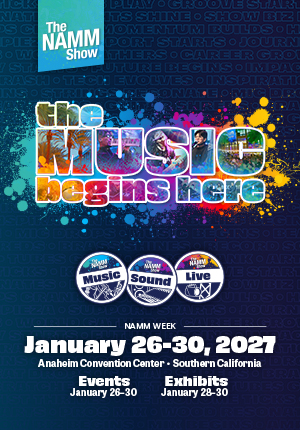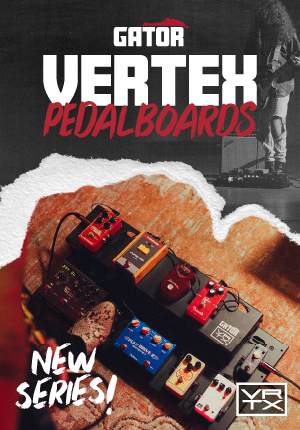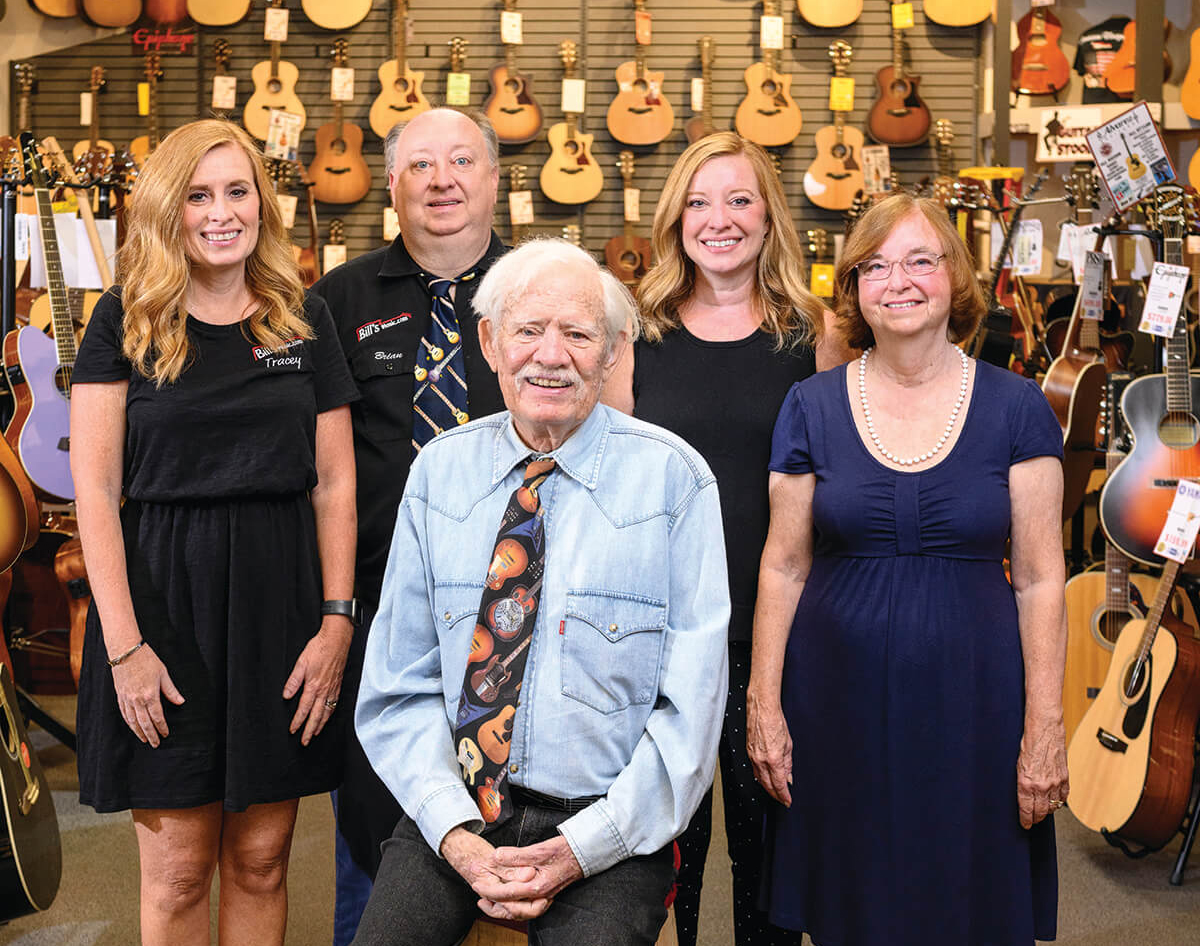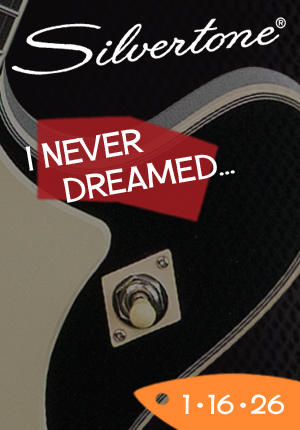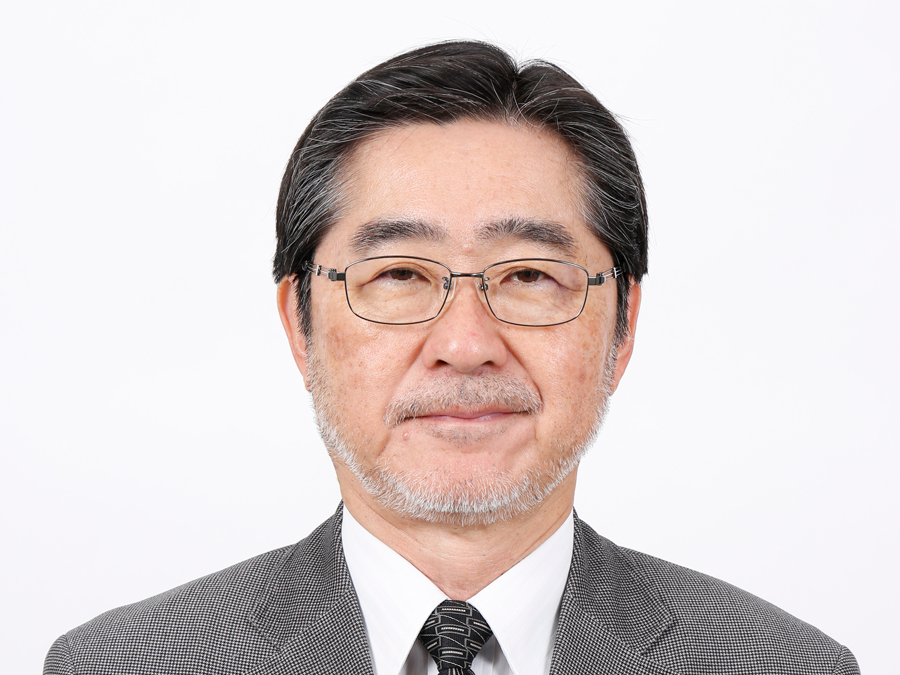
Masahiro Iijima, CEO of Zoom Corporation
May 12, 2020 I From the Top, Q&A
From The Top: Masahiro Iijima I Zoom Corporation
By Michael Gallant
HQ: Tokyo, Japan
Founded: 1983
Employees: 91 within Japan; 122 more as part of the Zoom Group worldwide
Best selling product: The Handy Recorder line of small audio recorders. “In particular, we have sold over 1.3 million H1 and H1n units in variouscolor variations,” Iijima said.
Fun Fact: An active guitarist and bassist, Iijima loves playing songs like the Eagles’ “Take It Easy” and the Beatles’ “Eight Days a Week” and “She Loves You.” “I really want to play ‘The Long and Winding Road’ like Paul McCartney does, but I cannot play piano,” he said. “I asked my wife to use that song at my funeral ceremony. It’s enough in the end.”
How do you start your day?
I prefer to separate business time when I’m on, and private time, when I’m off, so I try not to think about business when I’m at home. During my time on the commuter train going into the office in Tokyo, I start reading emails and checking my to-do list. Around thirty minutes of time in motion works well for me, helping me change my brain from off-mode to on-mode. Generally, though, I am not interested in following particular routines—experiencing something different every day seems more exciting for me. Being in love with my wife is the only consistent routine.
Has Covid-19 caused you to change that morning routine?
The company made sure everyone had the necessary equipment and software to work from home, so I also stay home as much as possible and minimize my work in the office. As I imagined it would be, it is difficult to change my mind over to business mode from my home. So my previous routine of using my commuting time to turn from private mode to business mode was definitely best for me.
How has the pandemic affected your sales and supply chain?
Online sales are still strong so far, and Chinese factories have recovered 100%.
However, throughout Asia, the supply chain for electric parts is not yet back to 100%. It will take time for everything to fully recover.
It seems like Zoom products are playing an important role in documenting the pandemic.
Podcasting has been a major application of Zoom products in recent years, and it is growing stronger than before because of the current situation. People have to stay home, and our products are one of the easiest choices for people to start podcasting.
Also, when people do video conferencing through PCs, Macs or mobile devices, video quality is fine because transmission speed and imaging sensors are usually highly developed—but sound can still be very poor, like an analog telephone conversation from fifty years ago. Our recording products, which have audio interface functions, work well to improve the sound for business conferencing. And our camera sales have been very strong, especially the Q2n-4K Handy Video Recorder.
Are you seeing confusion between your company and the Zoom video conferencing utility?
We are receiving a lot of contacts from customers who started using Zoom video conferencing. They are a completely different company using the Zoom name, which has caused confusion with customers, particularly consumers.
We have been using the Zoom brand name for over thirty-five years, and I would like Music Inc. readers to share this fact since they know our historical brand name better than people who are not in the MI industry.
What’s your musical background?
I started playing acoustic guitar when I was fifteen years old in order to find a cute girlfriend in high school, but it didn’t happen. I changed my direction to play electric bass when I entered university. I was oriented towards hard rock, with long hair and high-heeled boots. Then I changed direction again when I started working in the company, focusing on fusion music. Currently, I am involved in two bands—one plays Beatles songs and one plays music by the Eagles. Finally, I came back to my favorite music from when I was a teenager.
How would you describe your leadership style at Zoom?
I am working to make sure Zoom exists one hundred years from now, even though I will have passed away by then. Taking the company public, making new organizational structures, creating educational programs, mergers and acquisitions—all of my decisions have been made with this target in mind. Also, I am asking all Zoom associates to have integrity because integrity is the most important quality for human beings. Most social issues could be solved if everybody had integrity, like in the lyrics to John Lennon’s “Imagine.”
How did you feel when you first took over as CEO of Zoom?
The company made some important steps throughout its history—starting up, launching its first branded products, recovering from economic crises, and finding the right ways to grow. Four ex-CEOs before me worked well taking all of these steps. “What is my mission?” was my first thought when I got to be CEO. The answer was to make the company public on the Tokyo Stock Exchange, a step [that] might be the only [way] to make sure the company exists one hundred years from now.
Why did you decide to list Zoom on the Tokyo Stock Exchange?
When I retire in the future, there will be only two choices—to sell the company through a merger or acquisition or to be public.
When considering mergers and acquisitions, I thought that I would be happy to get enough money to retire—but would my Zoom associates be happy? I do not like this kind of behavior, in other words, the American Dream.
The pandemic notwithstanding, what part of your job are you most excited about right now?
I am excited [about] product planning at Zoom right now. During the period when I was trying to have Zoom listed on the stock exchange, I could not be involved in that part of the job—but after I finished that mission and the company went public in 2017, I got to spend time creating new ideas for products.
Do you have a single favorite product?
The Zoom H4 Handy Recorder is my favorite product. One reason is that I made a big decision to have an XY mic configuration, despite negative reactions from our industrial designer, and that design choice ended up making a big impact in the market. Second, the product name Handy Recorder was my idea and is the trade name of the Zoom brand. However, people are using it as a common name for handheld recorders in the same way that people used the term Walkman generally, and not just for products from Sony. I like this history very much.
Zoom is well known for its portable recorders—but many people are using smart phones to record these days. How have you led Zoom to adapt?
When I explain what good sound means to the general public—for example when I’m giving a presentation at an investor relations event—95% of people do not understand what it is. I try to explain frequency response, dynamic range and signal-to-noise ratio, but it is a waste of time.
The 5% who do understand good sound represent enough business to keep Zoom recorder sales thriving, though. Zoom is also expanding the business into the consumer electronics market, and not just staying in the music industry.
What’s your product distribution over market categories—and how have you approached product expansion?
The portfolio of our current business is 50% small recorders, 15% large recorders, 12% multi-effects, 5% video recorders, and the rest is other categories. Historically, we have challenged ourselves to expand Zoom’s business by adding new technology based on existing technology.
Who at Zoom is most responsible for the development of new products?
There is no dedicated product planning department in the company, despite the fact that new product ideas are the most important factor for the company’s success. New ideas are not born at the desk, and not always from the same person. All Zoom associates consider different product ideas all day long. And new product meetings happen everywhere, all the time, whenever somebody gets inspired.
It sounds like product innovation is very important to you.
I hate copycat products. In general, most new products in the world — and not only musical instruments — can be improved or changed by inspiration from competitors’ products. However, people can always recognize the difference between copying and competing.
Fortunately, the people involved in the MI industry tend to respect the original brand [that] first developed a new idea, in contrast to the consumer electronics industry. I believe that copying diminishes the integrity of any brand.
How do you approach making products that are technologically current and powerful—but are still accessible and fun?
I studied electronics at university, and I play guitar and bass. I understand the technology behind electronics and also can understand the artistic feeling of being a musician. Just like me, all of our engineers at Zoom play some musical instruments, so they know both the latest technologies and the feelings of artistic expression.
This is why we can produce easy-to-use products, even though they use cutting-edge technology.
If not music, what would you be doing?
Life does not happen intentionally. All of my turning points have happened accidentally, and fortunately, all were lucky. It’s hard to imagine what I would be if I wasn’t in the music technology world — a rock star, attorney, writer, architect — no other possibilities sound realistic.

